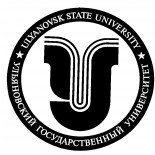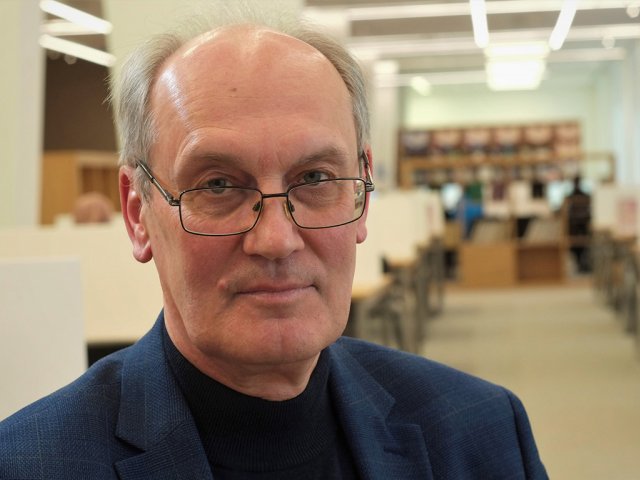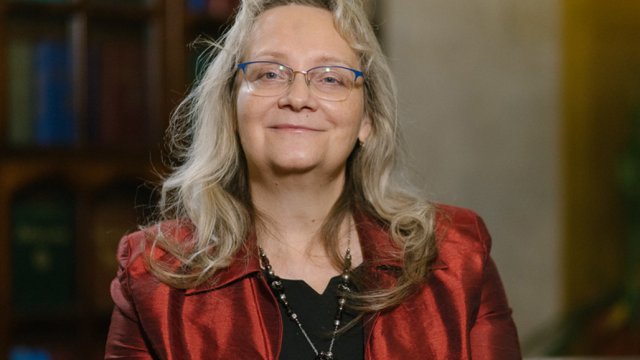Ulyanovsk State University is the youngest university in the city. Its history began in February 1988 with the adoption of the Resolution of the Council of Ministers of the USSR on opening a branch of the Lomonosov Moscow State University in Ulyanovsk. On December 17th, 1995, the Russian President Boris Yeltsin issued a decree transforming the Ulyanovsk branch of Lomonosov Moscow State University into the Ulyanovsk State University.
UlSU integrates classical university traditions with recent advances in the development of Russian and global education systems. The university fuses educational activities with innovation in the field of knowledge-intensive technologies. The University provides high-quality training to specialists who will shape the future development of major sectors of the region's economy and social infrastructure.
The traditions and quality standards of the Lomonosov Moscow State University embedded in UlSU throughout the years of joint work have in many aspects shaped the development of the new classical university on the Volga River, its high educational standards and scientific potential. In quite a short time, the University established a key position in the region’s educational and scientific fields.
With the support of colleagues from Moscow, the Ulyanovsk State University was staffed with a highly proficient faculty that included leading scientists from universities in Russia and CIS countries. World-renowned scientists teach at UlSU.
The University launches new disciplines, sets up departments and faculties, and introduces new progressive forms of instruction based on modern educational technologies. Administrators of UISU pay a lot of attention to improving the conditions of studies, work, lodging and recreation for students, teachers and employees.
UlSU is currently establishing a system that would integrate education, science and economy. The administrators of the University have signed a general agreement with the Governor of the Ulyanovsk region, Sergey
Morozov. There is a strategic partnership agreement with the City Duma and district administrations.
UlSU is a partner of the largest enterprises of the region, such as the Ulyanovsk Automobile Plant, Aviastar-SP Joint-Stock Company, Volga-Dnieper Group of Companies, Research Institute of Nuclear Reactors in Dimitrovgrad (NIIAR), Mars Scientific and Production Association and others. An extensive system of extended education encompassing retraining programs, advanced training courses, an MBA (Master of Business Administration) academic program and other areas is in place enabling students to increase their competitiveness in the labor market.
As a leading university of the Volga region, Ulyanovsk State University develops projects in the field of high technologies. The Center of Nanotechnologies and Materials has been created based on UlSU. The University actively participates in the processes of introducing new technologies into the science and industry of the region. The University has a wealth of theoretical and experimental research in the field of nanotechnology and is expanding its contacts to partners from other cities.
UlSU includes a unique division – the Institute of Medicine, Ecology and Physical Culture. Researchers of the institutes consolidate their efforts toward the completion of large-scale projects and interdisciplinary research. Health-saving technologies have the potential to encompass more than 15 scientific schools under UlSU, bringing together more than 80 doctors and 350 candidates of sciences.
Findings from the complex research of recent years in the field of radiation materials science, laser physics, nanotechnologies, and research lifecycle support technologies aim to solve applied problems of medicine, health care, biology, chemistry, ecology, environmental management, physical culture and sports.
International cooperation is an important priority for UlSU. The University operates Russian-American and Russian-German faculties. Students graduating from these faculties receive two diplomas, recognized both in Russia and abroad.
A cooperative structure is being set up with the University of Palermo (Italy). Plans include strengthening business ties with universities in the USA, Czech Republic, Germany, China, Mongolia, Kazakhstan and other CIS countries, faculty staff exchanges, development of language schools and student programs.
Between 1988 and 2016, UlSU set up state-of-the art facilities that meet the modern requirements of training highly proficient specialists and fostering fundamental and applied research and development, creative activities and socialization. The medical and biological center began its operations in 2013, followed up in 2014 by the commissioning of the Education/Lab/Production Building No. 5 to improve the educational process and deploy new scientific and technological equipment. During the same time, the Center for Nanotechnologies and Materials Science, the CALS Technology Research Center, the UlSU High Tech Park, and an electronic library with two Internet-enabled virtual reading rooms all have been established in UlSU.
The university operates its own media: the Vestnik Gazette, a television studio and a press center. Cultural and leisure activities in the University are managed by the UlSU Student Club and UlSU Sports Club, assisted by student self-government bodies: students’ union and the Student
Council of UlSU.
The University sees its pride as its students. The Ulyanovsk State University has everything in place for a real student-centric atmosphere: spacious classrooms, cozy dining rooms, access to the latest information technologies, no space-time boundaries, state-of-the-art labs – all this certainly helps in studies and research. For those with a real passion for science, UlSU operates a postgraduate program where one can continue their studies in 60 disciplines, with internships and residency options.
Today, the mission of the classical university is no longer limited to staffing and scientific support of public institutions. The university drives “growth points” as it integrates into the region’s intellectual, social, cultural and economic space. It serves as a center of science, culture and education through productive cooperation with state structures.
Ulyanovsk State University is an example of active interaction with the Government of Ulyanovsk Oblast. Fundamental and applied research, innovative developments serving the interest of the Ulyanovsk Oblast are carried out at the UlSU premises. Specialists from the Ulyanovsk State University carry out professional training, re-training and advanced training of civil and municipal employees, provide methodological assistance in certification of professional and managerial skills of civil servants. The University contributes the expertise and data science to support the work of Ulyanovsk Oblast executive authorities. UlSU has established itself as an institution of high social responsibility: no major social program would take place in the region without the participation of the University.
The university has a well-thought-out personnel policy. More than 70% of the staff in the Prosecutor's Office are UlSU graduates, with a similar proportion among banking employees, creative workers and certified doctors. UlSU graduates are competitive in the labor market, work in legislative and executive bodies, hold high positions in industrial and commercial firms in Ulyanovsk region, Moscow, St. Petersburg and other regions of the country, as well as abroad.
Today Ulyanovsk State University is not only a valuable asset of the region but an adornment of the city as well. A university campus – featuring a new neighborhood with playgrounds, fountains and lawns – has sprung up along the Sviyaga Embankment. The University's thirty-year history confirms a well-known theory: we live in an era that demands from society a great creative force together with willingness to move towards development and self-improvement.
The Rector of UlSU is Boris Mikhailovich Kostishko
B.M. Kostishko was born on December 9th, 1965 in Kemlya Village, Ichalki District, Mordovian ASSR. As a graduate of the M. V. Lomonosov Moscow State University and inheriting the traditions of the Moscow scientific school, he went from an assistant to department head to institute director. Having begun his career in 1992 at the Ulyanovsk branch of the Moscow State University, he took an active part in the formation of the fledgling university, the formation and development of its educational and laboratory assets and scientific school.
Boris Kostishko is a unique specialist in the field of high vacuum engineering, Auger spectroscopy and semiconductor technology. The Department of Physical Methods in Applied Research under his leadership cooperates actively with scientists from the Faculty of Physics in Moscow, Yaroslavl and Samara State Universities. In the area of basic research, he has established himself as a competent expert and a talented scientist whose works are cited in global scientific publications. He led projects launched by the Russian Foundation for Basic Research, managed the Universities of Russia program as well as programs operated by the Ministry of Science and Education, the American Physical Society. He has published more than 200 scientific and educational works, including a monograph and handbook with the seal of approval from an academic methodological association.
Two candidate’s theses were defended under his leadership.






















